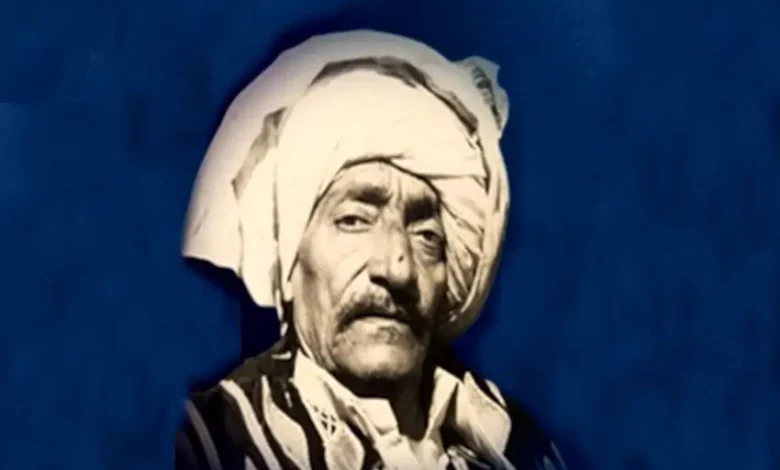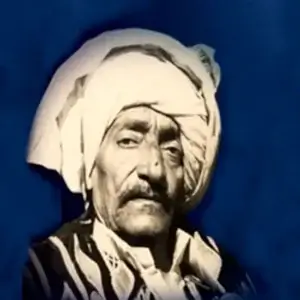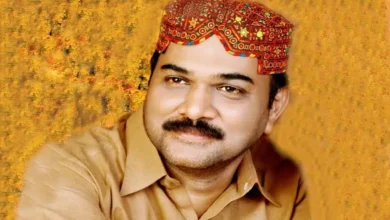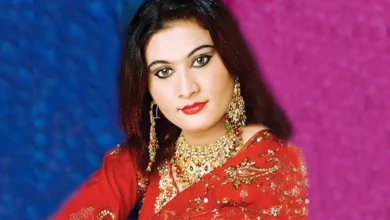Faqeer Abdul Ghafoor – Bio, Top 12 Best Sindhi Sufi Music

Faqeer Abdul Ghafoor most popular Sindhi Sufi music artist, is a revered figure whose contribution has left an indelible mark. Let us delve into the life, music, and legacy of this renowned Sindhi Sufi music singer. With its deep spiritual resonance and rich cultural heritage, Sindhi Sufi music holds a special place in the hearts of many.
Best Faqeer Abdul Ghafoor Sindhi Sufi Music Download
Biography and Early Life
Birth and Upbringing
Born in central Sindh in 1910, Faqeer Abdul Ghafoor was brought up in a culturally rich feudal state. His early years were steeped in the musical traditions that surrounded him, especially from the revered temples of Sindh.
Cultural and Musical Environment
Growing up, Faqeer Abdul Ghafoor was exposed to the sounds of Sufi music, music heavily blended with spiritual practices in mosques Local “Autaqs” (traditional meeting places) and soulful interpretations of Sufi poet’s forms shaped the soundtrack of his childhood.
Music training at Hazrat Sachal Saramast Shrine
Initial Training
Faqeer Abdul Ghafoor read from Hazrat Sachal Sarmast R.A. Here he honed his skills by playing Sindhi art, classical music, and love songs, drawing on the richness of Sufi poetry.
Influence of the Shrine on His Music
The spiritual ambiance of the shrine greatly influenced his musical style. It was here that he absorbed the essence of Sufi music, which emphasizes devotion, love, and mysticism, shaping his artistic expression.
Influence of Sindhi Shrines on Music
Role of Shrines in Sindhi Music
Historically, shrines in Sindh have been excellent performing arts venues. They provided a platform for musicians to collect, share, and develop their art. Abdul Ghafoor’s association with these shrines is crucial to his musical journey.
Interacting with classmates and other musicians
In these shrines, he interacted with many prominent Sindhi artists. These interactions deepened his understanding and appreciation of genres and styles, further enriching his unique Sindhi folk music.
Faqeer Abdul Ghafoor’s Musical Style
Description of His Style
Faqeer Abdul Ghafoor’s music is characterized by its deep emotional resonance and spiritual fervor. His performances were a blend of powerful vocals and intricate instrumental accompaniments.
Instruments Used
He often played the “Yaktaro,” a traditional single-stringed instrument, which added a distinct flavor to his music. The simplicity of the Yaktaro allowed the profound lyrics and emotive voice to take center stage.
Vocal Techniques
His vocal style was marked by its clarity and emotional depth. He employed traditional techniques that resonated deeply with listeners, evoking a sense of spiritual awakening and emotional connection.
Popular Works and Performances
Notable Songs and Compositions
Among his vast repertoire, some of his most cherished songs include renditions of poetry by Shah Abdul Latif Bhitai and Sachal Sarmast. These compositions remain timeless, and revered by generations.
Major Performances and Events
Faqeer Abdul Ghafoor’s performances were a staple at cultural and religious gatherings. His presence at major events brought a unique aura, drawing audiences from far and wide.
Contribution to Sindhi Sufi Music
Impact on Sindhi Culture
Abdul Ghafoor’s contributions went beyond music; they were a celebration of Sindhi culture and spirituality. His songs often carried messages of love, peace, and unity, resonating with the core values of Sufism.
Influence on Other Artists
Many contemporary Sindhi artists credit Faqeer Abdul Ghafoor as a significant influence on their work. His style and dedication to Sufi music continue to inspire new generations of musicians.
Legacy and Recognition
Awards and Honors
Throughout his life, Abdul Ghafoor received numerous accolades recognizing his contributions to Sindhi music and culture. These awards cemented his status as a pivotal figure in the realm of Sufi music.
Continued Influence After His Death
Even after his passing in 1986, his music continues to thrive. His recordings are cherished, and his legacy is celebrated annually by fans and fellow musicians.
Old Sindhi Sufi Music: An Overview
Historical Background
Sindhi Sufi music has a long and storied history, deeply rooted in the region’s spiritual traditions. It evolved as a means to express devotion and connect with the divine.
Key Figures in Sindhi Sufi Music
Apart from Faqeer Abdul Ghafoor, figures like Shah Abdul Latif Bhitai and Sachal Sarmast have played pivotal roles in shaping this genre. Their poetry and music continue to inspire and resonate with audiences.
Sufi Music Beyond Sindh
Sufi Music in Other Regions
From the whirling dervishes in Turkey to the Gnawa musicians in West Africa, Sufi music manifests in diverse forms.
Comparison with Sindhi Sufi Music
While the essence of devotion and mysticism remains consistent, regional variations add unique flavors. Sindhi Sufi music, with its distinctive instruments and poetic styles, offers a unique spiritual experience.
Role of Sufi Music in Spiritual Practices
Importance in Sufi Rituals
Music is integral to Sufi rituals, facilitating a connection between the devotees and the divine. The rhythmic and melodic elements of Sufi music are believed to aid in achieving a state of spiritual ecstasy.
Connection to Spirituality
Faqeer Abdul Ghafoor’s music, like much of Sufi classical music, serves as a bridge to spirituality. It encapsulates the essence of Sufi teachings, fostering a deeper understanding and connection with the divine.
Impact of Sufi Music on Listeners
Emotional and Spiritual Effects
Listeners often describe Sufi music as a transformative experience. The emotional power of the songs and lyrics evokes a deep emotional response, leading to a period of introspection and spiritual awakening.
Information for the audience
Many share personal stories of how Abdul Ghafoor’s music touched their lives. From providing comfort in difficult times to heightening moments of joy, his Sindhi Folk songs have had a lasting impact.
Contemporary Sindhi Sufi Music
Evolution Over Time
Sindhi Sufi music has evolved, incorporating modern elements while retaining its traditional essence. This development ensures relevance and appeal to today’s audiences.
Contemporary Artists and Trends
New artists continue to emerge drawing inspiration from legends like Abdul Ghafoor. They experiment with different blends, blending traditional Sufi songs with contemporary sounds to create unique music.
How To Get Sindhi Sufi Songs
Platforms for Listening and Downloading
Sindhi Sufi music is widely accessible on various platforms. From streaming services to dedicated music websites, there are numerous ways to explore and enjoy this rich musical heritage. Download Music free from our website Media Music Mania.
Recommendations for New Listeners
For those new to Sindhi Sufi music, there are good options, starting with the recordings of Faqir Abdul Ghafoor. His music provides a perfect introduction to the genre and captures its spirit and soul.
Conclusion
Faqeer Abdul Ghafoor’s contribution to Sindhi Sufi music is monumental. His dedication to preserving and promoting this rich cultural heritage has left a lasting legacy. Sindhi folk music has deep spiritual roots and emotional power, transcends boundaries touches the heart, and continues to inspire and uplift listeners. For more Sindhi Sufi music visit our website Media Music Mania.
FAQs
What is Sindhi Sufi music?
It combines poetry, music, and mysticism to express devotion and connect with the divine.
Who was Faqeer Abdul Ghafoor?
. He received his early training at the shrine of Hazrat Sachal Sarmast R.A and became a pivotal figure in Sindhi Sufi music.
What instruments are commonly used in Sindhi Sufi music?
Instruments like the Yaktaro (a single-stringed instrument) and various traditional percussions are commonly used in Sindhi Sufi music. These instruments complement the soulful vocals and enhance the spiritual experience.
How does Sufi music affect listeners?
Sufi music is known for its emotional and spiritual impact. It evokes deep emotional responses, often leading to moments of introspection and spiritual awakening, fostering a profound connection with the divine.
Where can I listen to Sindhi Sufi music?
Sindhi Sufi music is available on various streaming platforms, dedicated music websites, and through cultural events.








